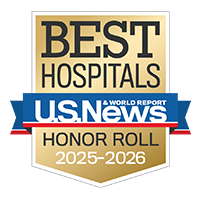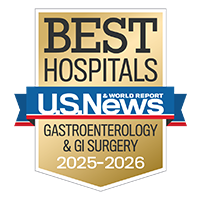Heartburn

Overview
Heartburn, also known as acid indigestion, is a common symptom of gastroesophageal reflux (GERD) or acid reflux. You may experience GERD when acid contents in your stomach back up into your esophagus. This occurs when a muscle at the end of the esophagus, called the lower esophageal sphincter (LES), fails to operate properly. The LES opens when swallowing to allow the passage of food to the stomach and then closes to prevent food juices from returning, or refluxing, back into the esophagus.
The cause of heartburn is unknown, but certain factors may contribute to the condition. They include:
- Specific foods such as garlic, spicy foods and fried foods
- Smoking
- Caffeine
- Pregnancy
- Being overweight
- Alcohol
- Certain medications, such as nitrates and some muscle relaxants
A condition known as hiatal hernia also may contribute to heartburn. A hiatal hernia occurs when the upper part of the stomach is above the diaphragm, the muscle wall that separates the stomach from the chest. The diaphragm helps the LES keep acid from coming up into the esophagus. When a hiatal hernia is present, it is easier for the acid to come up.
Occasional heartburn doesn't mean you have GERD. Ten percent of the population experiences heartburn and other symptoms of GERD at least once a week. But heartburn that occurs more than twice a week may be considered GERD, which can lead to more serious health problems such as inflammation of the esophagus or Barrett's esophagus and lung problems.
Our approach to heartburn
Medications and changes to diet and lifestyle can often relieve heartburn symptoms. If these options fail, however, a surgery called fundoplication can provide a cure. UCSF gastrointestinal surgeons usually perform this as a minimally invasive laparoscopic procedure, inserting tiny instruments and a miniature camera through several small incisions.
UCSF surgeons helped pioneer laparoscopic gastrointestinal surgery, and they perform many of these procedures each year. Compared with traditional open surgery, minimally invasive surgery has significant benefits for patients, including a faster recovery, lower risk of infection, and less pain and scarring.
Awards & recognition
-

Among the top hospitals in the nation
-

Best in Northern California for gastroenterology & GI surgery
Signs & symptoms
Heartburn is a burning pain in the lower breastbone that may travel toward your neck. It also is associated with regurgitation of food and liquid into your mouth and a bitter or acidic taste.
Heartburn, also known as acid indigestion, is actually a common symptom of an underlying condition called gastroesophageal reflux (GERD) or acid reflux. In addition to heartburn, symptoms of GERD may include:
- Persistent sore throat
- Hoarseness
- Chronic cough
- Asthma
- Chest pain
- Feeling like there is a lump in your throat
Diagnosis
Talking with your doctor about your symptoms may be enough for him or her to make a diagnosis of gastroesophageal reflux (GERD). However, additional tests may be recommended to determine its severity, including:
- Upper GI endoscopy. An endoscope is a device consisting of a flexible tube and a mini camera. In endoscopy, this device is introduced through the mouth to view the esophagus, stomach and upper small intestines.
- Upper GI series. These are a series of X-rays that examine the esophagus, stomach and small intestine. The X-rays are taken after you have swallowed a barium suspension, which coats the lining of the upper gastrointestinal tract. A radiologist then looks for irregularities in the linings, which can help diagnose a variety of digestive problems.
- Esophageal manometry. This test measures the motor action of the lower esophageal sphincter and esophageal body. A catheter measures esophageal pressure and records the duration and sequence of contractions.
- Esophageal pH monitoring. This is a test to measure the frequency and duration of stomach acid that enters the esophagus.
Treatments
If you have ever experienced occasional heartburn associated with gastroesophageal reflux (GERD), you are probably familiar with the popular over-the counter antacids that neutralize stomach acid and relieve heartburn symptoms. However, these medications will typically not work if your heartburn is more frequent and severe. Other medications, which work to prevent reflux and block acid production, are available for more severe cases of heartburn.
In addition, lifestyle and dietary modifications are recommended and may relieve symptoms in some patients. A surgical procedure called fundoplication to tighten the lower esophageal sphincter muscles, or LES muscles, may be an alternative to drug therapy.
Recently, less invasive endoscopy techniques have been developed to tighten the barrier between the esophagus and the stomach. However, the safety and effectiveness of these new alternatives to surgery are still being determined.
UCSF Health medical specialists have reviewed this information. It is for educational purposes only and is not intended to replace the advice of your doctor or other health care provider. We encourage you to discuss any questions or concerns you may have with your provider.










